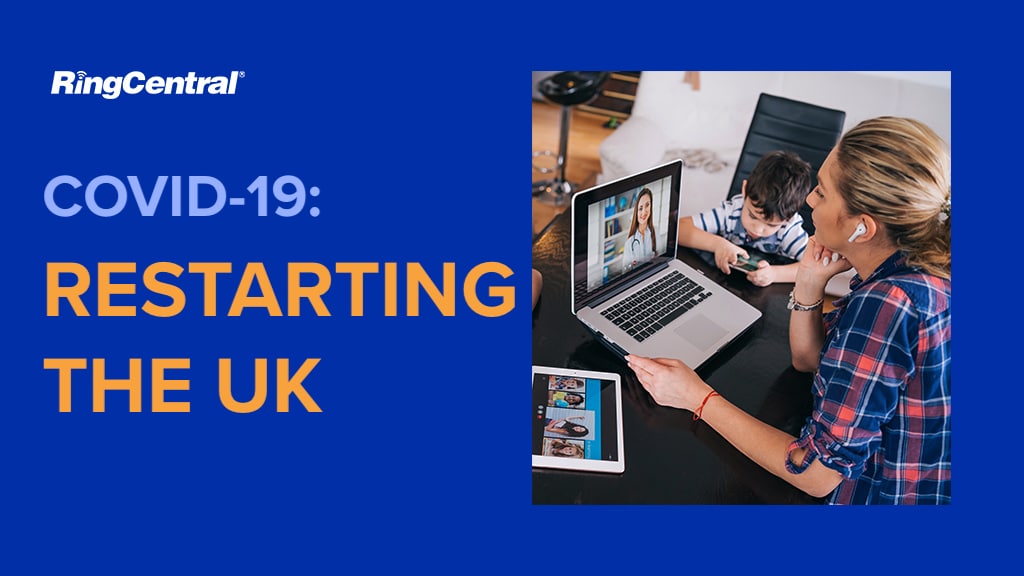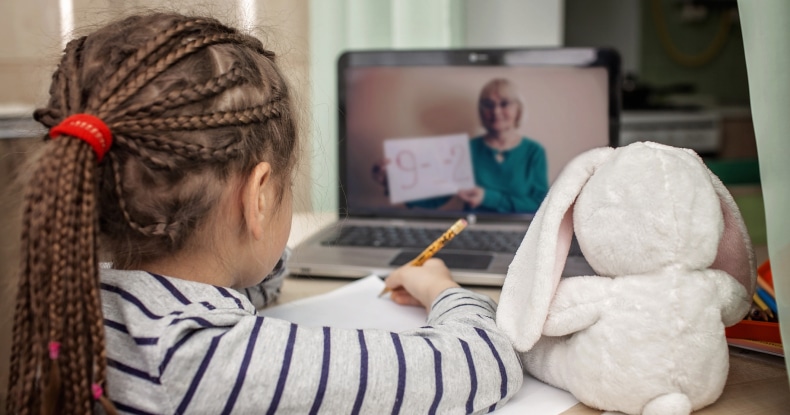Lockdown knocked us all for six. Isolation measures pressured communities through the necessity of social distancing and the threat of contagion. Fortunately, we were able to mitigate difficult effects like loneliness or stress and feelings of isolation through virtual face-to-face connections. Video conferencing capability played a large part in this.
To help support groups stay operational, RingCentral offered free licences to certain sectors, and they were picked up by a large number of healthcare, education and non-profit groups to maintain their essential services to the community. Here are three such stories.
Radha Krishna Temple
Volunteers support Radha Krishna Temple in London.
When the lockdown rules came into effect, places of worship were closed to the public, and Radha Krishna Temple dutifully closed its doors. This had a profound effect on some members of the temple’s community, particularly the elderly members of the congregation.
When the offer for free RingCentral Office licences was announced, temple volunteers understood how it could benefit their congregation. Using RingCentral, the temple has been scheduling regular video conferences for communal prayer, Gujarati lessons for children, and games to keep young ones engaged and entertained.
The video conferencing allows elderly members of the community to join in, and helps the temple volunteers keep an eye on people who might be alone or vulnerable to make sure they have what they need. The utility of the system is in its accessibility: organisers send a link via WhatsApp, and people can either use that to open the RingCentral app on their device or simply join the call via their browser. For those who haven’t quite grasped the concept of installing an app, it’s also possible to dial into the call using their phone.

St. Bartholomew’s Church of England Primary School
From early in the pandemic, St. Bartholomew’s School in Bolton has been demonstrating the capability of digital networks and video conferencing to keep communities connected. As schools closed and children had to stay at home, Headteacher Mark Johns decided to take action to keep pupils engaged, continue delivery of lessons, and maintain connections between staff and parents.
Mark took advantage of RingCentral’s free offer of RingCentral Office licences to set up a new internal and external communications system for the school. The school uses video conferencing to post department updates, run quizzes, continue lessons, and stay connected with parents. Internally, the staff use the cloud-based tools to conduct regular staff meetings and provide support wherever needed. The school announces its communication events on Twitter, using the broadcast nature to spread a wide message with little effort.
Men’s Action Network
Mental health has been a prominent subject in the discussion of life during lockdown. Counsellors and psychiatrists have also adopted video conferencing to offer continuity of their services while the uncertainty of the pandemic looms large. Men’s Action Network, an organisation promoting and supporting men’s mental health in Northern Ireland, used RingCentral’s cloud-based voice and video service to maintain contact with clients.
Accepting RingCentral’s offer of free licences to help continue their work during the pandemic, Men’s Action Network was able to upgrade from an office-based PBX to a cloud service to keep their helpline open by enabling volunteers to receive calls from anywhere on their mobile devices. The organisation is also able to maintain its face-to-face counselling service by using video calls as an alternative to same-room interaction.
In the UK, lockdown restrictions are easing, friends are reuniting and life begins to get back to normal. Service must continue, and we must remain vigilant in our efforts to prevent contamination. This experience has taught us what we’re capable of when enabled by technology. It’s not only a ‘nice to have’: in situations like the pandemic, it’s a need.
Originally published Jun 26, 2020, updated Jan 16, 2023
